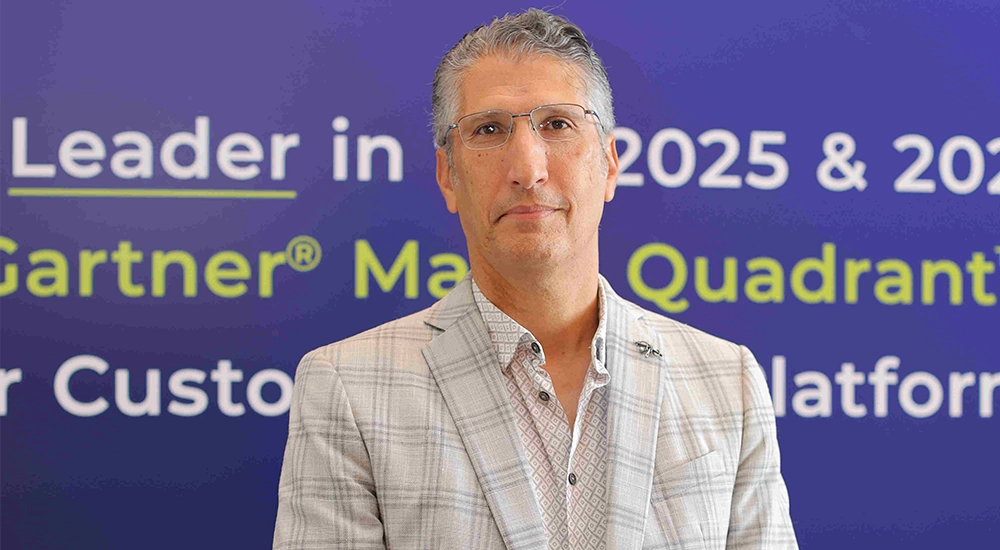Ali Behnam, Co-Founder of Tealium, shares how the company’s latest expansion into the UAE is helping businesses activate customer data in real time—without compromising compliance or trust.
How does your new data residency capability on AWS UAE strengthen your value proposition to local businesses?
Tealium’s partnership with AWS is a major step forward in our commitment to the region. By leveraging AWS’s secure and scalable infrastructure, we enable local enterprises to access our real-time Customer Data Platform (CDP) while ensuring full compliance with the UAE’s data privacy and residency regulations. This means businesses no longer have to choose between speed and compliance. With data stored locally, companies benefit from lower latency, stronger data control, and faster activation of customer insights.
Importantly, this also empowers businesses to adopt AI-powered strategies with confidence. Whether it’s personalizing customer journeys or optimizing marketing campaigns, our solutions help clients turn data into action, securely and in real time. As more UAE and MEA organizations prioritize digital transformation, having a local cloud footprint enhances trust and simplifies deployment.
How is Tealium navigating growing data privacy regulations while still enabling real-time data activation and personalization?
Tealium approaches data privacy and personalization as two sides of the same coin. As regulations like GDPR, CCPA and UAE’s PDPL become more stringent, we ensure compliance by embedding data governance into every layer of the platform. From clear consent management tools to real-time data lineage tracking, we help businesses maintain transparency and accountability at scale.
We also focus heavily on data quality, ensuring that the insights powering personalization are accurate, timely, and consented. Real-time validation, cleansing, and quality checks ensure the foundation is solid. Moreover, we invest in customer education through webinars, workshops, and guides to help teams build a strong understanding of both compliance and responsible innovation. By balancing speed with safety, we help organizations maximize the value of their data while staying on the right side of global regulations.
How does Tealium bridge the gap between raw customer data and AI-powered decision-making?
The key to unlocking AI’s potential lies in having the right data, in the right format, at the right time. Tealium’s Customer Data Platform bridges this gap by unifying fragmented data from across the enterprise and transforming it into actionable customer profiles. Our platform captures in-the-moment behavioural data, the “pulse” of the customer, and enriches it with historical context, creating a 360-degree view.
This foundation enables AI models to deliver relevant, real-time insights. Whether predicting customer churn or suggesting next-best actions, businesses can activate AI-driven strategies across all channels. Tealium integrates with cloud data warehouses and CRMs, ensuring AI models are continuously fed with high-quality, up-to-date data. Our report found that 79% of companies saw ROI within 12 months of CDP implementation, and 81% of users reported strong satisfaction with their platform’s support for AI. This reflects our mission to turn data into a strategic asset, driving efficiency, personalization, and long-term customer value.
With so much AI hype in marketing, how do you advise brands to actually generate ROI from AI?
AI only delivers ROI when powered by clean, real-time, and consented data. Many brands jump straight to AI tools without first ensuring their data infrastructure is ready. Businesses should start with a strong data strategy. They must centralize their data using a CDP, define clear KPIs tied to customer lifetime value (CLV), and ensure organizational alignment across marketing, finance, and tech teams.
AI excels when it’s trained on relevant, high-quality inputs. This includes first-party data enriched with customer preferences, past interactions, and behaviours. Real-time pipelines allow businesses to act instantly. Beyond tools, businesses need to build internal capabilities to manage, test, and refine their AI outputs. With the Middle East projected to see $320 billion in AI-related economic value by 2030, the time to invest in infrastructure and skills is now. At Tealium, we help clients take a phased, measurable approach to AI adoption, focused on tangible results, not just experimentation.
What’s the biggest misconception businesses have about building a customer data platform (CDP) strategy?
One major misconception is that buying a CDP will instantly fix all data challenges. In reality, a CDP is a powerful enabler, but its success depends on the clarity of your goals, the quality of your data, and cross-functional collaboration. Many businesses underestimate the need for internal alignment before implementation. A successful CDP strategy starts with defining use cases whether it’s real-time personalization, campaign optimization, or predictive analytics. Once that’s clear, the platform can be configured to deliver actionable insights.
Another false assumption is that CDPs are only for marketing. In fact, they support customer experience, sales, product, and even compliance teams. The most successful CDP strategies involve stakeholders from across the organization. Ultimately, the CDP should be viewed not as a tool for one department but as a business transformation enabler. When built with a customer-first mindset and supported by strong data governance, a CDP can deliver both short-term wins and long-term competitive advantage.
How is real-time data activation changing the landscape of customer experience in sectors like retail, finance, and government?
In retail, businesses can respond to shopper behaviors instantly, delivering offers or recommendations at the right moment, both online and in-store. In finance, real-time data activation allows banks to immediately flag suspicious transactions, offer tailored credit card promotions based on recent spending habits, or provide investment advice aligned with a customer’s portfolio. For governments and public services, real-time data enables more agile and responsive citizen services, from digital ID verification to live support channels. This kind of responsiveness helps improve customer engagement, reduce churn, and drive higher lifetime value through more relevant, proactive services.
The key benefit across all sectors is agility. With real-time access to customer data, organizations can detect patterns, address pain points, and pivot strategies without delay. This leads to smoother, more personalized experiences that boost loyalty and trust. At Tealium, we help clients unify their data and activate it across platforms instantly, ensuring that every customer touchpoint is informed by the most up-to-date insights. As expectations continue to rise, real-time activation is a business imperative.
What role does AI play inside Tealium’s own platform today—and where do you see it heading next?
AI is embedded across Tealium’s platform to support smarter, faster decision-making. Today, it powers features like customer scoring. We also use AI to improve the workflow inside the product, allowing for faster adoption of the product among different business teams.
Looking ahead, we see AI moving even deeper into real-time personalization and adaptive learning. At the same time, we remain focused on ethical AI. That means giving clients transparency into how models make decisions, supporting bias detection, and ensuring all data is fully compliant with local and international standards. As AI matures, trust and transparency will be just as important as performance. Tealium is committed to helping businesses unlock AI’s full value in a responsible manner.
What advice would you give to companies that are data-rich but insight-poor?
Many companies collect data across dozens of systems but struggle to unify it into something actionable. Our advice is to start by eliminating silos. A CDP centralizes data from all sources and makes it available in real time, giving teams a single, reliable customer view.
Next, focus on data quality. That means validating, cleansing, and standardizing your inputs so you can trust the outputs. Then layer on AI to surface patterns, predict outcomes, and inform strategy. But none of this works without clear goals. Organizations need to identify the key decisions they aim to enhance and the customer behaviors that most significantly influence business outcomes. With the right foundation, data becomes a strategic asset instead of an untapped resource. At Tealium, we help organizations go from overwhelmed to insight-driven, turning raw data into measurable business impact.





















